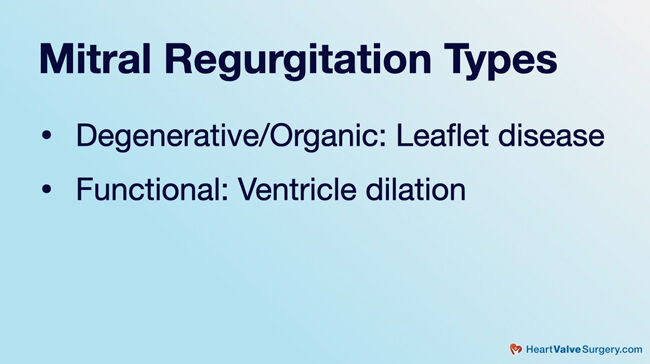Cardiologist Q&A: Risks & Treatment of Asymptomatic Degenerative Mitral Regurgitation
Written By: Adam Pick, Patient Advocate, Author & Website Founder
Medical Expert: James Thomas, MD, Professor of Medicine (Cardiology), Northwestern Medicine
Published: January 12, 2022
One of the reasons that heart valve disease is referred to as an “insidious disease” is the fact that patients with severe forms of valvular disorders can be completely asymptomatic. As a result, patients without symptoms may unknowingly experience cardiac damage that could lead to heart failure and life-threatening situations.
For this reason, we interviewed Dr. James Thomas, Professor of Medicine (Cardiology) at Northwestern Medicine in Chicago, Illinois, to learn about one type of asymptomatic heart valve disease known as degenerative mitral regurgitation. As you may know, Dr. Thomas is a leading heart valve expert, known his cutting-edge research specific to echocardiography specific to the management and treatment of cardiac valve disorders.
Key Learnings About Asymptomatic Degenerative Mitral Regurgitation
The key learnings that Dr. Thomas shared during this interview include:
- Dr. Thomas is a heart valve expert who has spent most of his 25+ year career helping patients with valvular disorders including aortic stenosis and mitral regurgitation. Given his interests in physics, Dr. Thomas was attracted to the unique ability to use echocardiography for the enhanced management and treatment heart valve disorders.
 Dr. James Thomas
Dr. James Thomas
- Mitral regurgitation, a leaky valve, can block the flow of blood through the heart. There are two main categories of mitral regurgitation that are degenerative (organic) mitral regurgitation, caused by heart valve leaflet disfunction, and functional mitral regurgitation, caused by structural issues that support the valve (e.g. the mitral valve annulus).

- Common symptoms of mitral regurgitation include fatigue, shortness of breath, an enlarged heart, and atrial fibrillation.
- Treatment for mitral regurgitation may include medications. However, as mitral regurgitation is a mechanical issue within the cardiac structure, more severe forms of therapy may require a surgical mitral valve repair/replacement or transcatheter mitral valve repair/replacement.
- Patients with mitral regurgitation can be completely asymptomatic. As Dr. Thomas stated, “I’ve seen some patients who are really great athletes. They are running marathons. The patients are in such good shape that you don’t recognize any symptoms. But, they may have very serious valvular regurgitation that needs to be addressed.”
- Important indicators that are tracked by Dr. Thomas for patients with asymptomatic degenerative mitral regurgitation include (i) changes in the performance of the heart and the mitral valve detected through echocardiography over time, (ii) pumping function of the left ventricle, and (iii) size of left atrium.
- Dr. Thomas and Dr. Patrick McCarthy (Chief of Cardiac Surgery at Northwestern Medicine) recently published research in the Journal of Thoracic and Cardiovascular Surgery that analyzed patient data over the past 15 years which examined the impact of mitral valve repair surgery on asymptomatic or minimally-symptomatic patients. Those patients who had surgery early had better outcomes than those patients who waited to develop true symptoms. Here is a video of Dr. McCarthy discussing this important, new research paper:
- For his best piece of advice, Dr. Thomas states, “I think the most important thing is for patients to make sure they get to a mitral valve center of excellence. This is a relatively rare disease. You want to get yourself to a place that sees a lot of it. There are number of good centers around the country that are very experienced with this disease.”
Many Thanks to Dr. Thomas & Northwestern Medicine!
On behalf of our entire patient community, many thanks to Dr. Thomas for sharing his clinical experience and research with our community! Also, many thanks to the Northwestern Medicine team for taking such great care of heart valve patients.
Related links:
- Clinical Trial Innovation: REPAIR MR for Mitral Regurgitation Patients Enrolling Now
- Research Alert: Asymptomatic Degenerative Mitral Regurgitation Repair
Keep on tickin!
Adam
P.S. For the hearing impaired members of our patient community, I have provided a written transcript of this video below.
Video Transcript:
Adam: Hi, everybody, it’s Adam with heartvalvesurgery.com, and this is a very important cardiologist question and answer session all about asymptomatic degenerative mitral regurgitation. I am thrilled to be joined by Dr. James Thomas, who is one of the leading Cardiologist at Northwestern Medicine in Chicago, Illinois. During his extraordinary career, Dr. Thomas has helped thousands of heart valve patients better understand the management and treatment of valvular disorders.
Adam: Dr. Thomas, you and I have known each other for many years, so it is great to see you again.
Dr. Thomas: Great seeing you, Adam, and great to be with the heartvalvesurgery.com community.
Adam: Yeah, so we’re going to talk all about asymptomatic degenerative mitral regurgitation, but first I have a question for you. Why did you want to become a cardiologist?
Dr. Thomas: That is sort of an interesting story, Adam. When I originally went to residency, it was with the idea that I’d just be basically a general internist and see all sorts of disease entities coming through the door, but when I started my clinic practice during my residency – we all had outpatient clinics – I inherited a family of gypsies from a resident who are just graduated and they were, first of all, a very fascinating group of people to work with and get to know. Then they also just had incredible heart disease. The youngest heart attack I’ve ever seen was in a 17-year-old gypsy girl who came in with a right coronary artery occlusion, so after taking care of them for three years, it just seemed natural to continue with cardiology.
Adam: Dr. Thomas, so glad you have pursued cardiology given all the great work that you’ve done for the patients at heartvalvesurgery.com and I’m curious to know what specifically attracted you to heart valve disease.
Dr. Thomas: Part of it was my own sort of academic background. When I went to college, I thought I would be an astrophysicist or maybe a particle physicist. I really was a hardcore physics type of guy and studied a lot of fluid dynamics and structural mechanics, and so I was really attracted to sort of valvular heart disease just because there was a lot of plumbing going on there and there was lot to study in echocardiography. I really made my research career one of extracting as much information as possible from echocardiograms. Then just working with the valve population, I just really came to love the complexity of the cases that would come in. I love it that patients can be just as sick as they can possibly be and with good, quick diagnosis and rapid intervention from a surgeon or an interventionalist or maybe medicines, we can really give them back a normal life.
Adam: Dr. Thomas, one form of heart valve disease is mitral regurgitation. For the patients and maybe their family members who have never heard that term, can you help them understand what is mitral regurgitation?
Dr. Thomas: First of all, there are four valves in the heart and if you sort of take them in order that the blood encounters, the blood first returns from all the muscles and organs of the body and pass through the tricuspid valve into the right ventricle, then out the pulmonic valve into the lungs and then they empty into the left atrium. Then from the left atrium to get into the left ventricle, there will be – they have to pass through the mitral valve and then to get out of the heart, they go through the aortic valve. So the mitral valve is a two-leaflet valve, like that, that connects the atrium to the ventricle. The idea is it prevents no blockage at all when the blood is flowing from the atrium into the ventricle but as soon the ventricle starts to contract, that valve closes and it prevents all blood from leaking backwards. Now, when that valve get diseased, like imagine part of it ruptures and is sort of a flail like this, then you have a hole in the valve effectively, and that allows a large volume of the blood to go rushing backwards into the left atrium, and that’s what we called regurgitation.
Adam: Dr. Thomas, in the medical world there is lots of different types of diseases. Are there any unique forms of mitral regurgitation that patients might want to know about?
Dr. Thomas: Great question, Adam, and yes, there are some very different types of valve disease and they are treated in different ways. As a broad category, we split into two and we have what we called organic mitral regurgitation and that’s where the leaflet is really diseased. there is a hole in the leaflet, or it’s prolapsing, or it’s flailing; there is something obviously wrong with the valve and that is causing the leakage. The opposite of that is what we call functional mitral regurgitation where if you look at the leaflets, they’re are actually pretty normal; they may be completely normal. The problem is that the ventricle is dilated in some way or they’ve had a heart attack that has made part of the heart not contract, and so the leaflet gets kind a tethered outward and it no longer closes normally, not because the leaflets are abnormal but because it’s being tethered outward by this abnormal left ventricle.
Now, for that functional mitral regurgitation, our first line of defense is medical treatment, is to really make sure these patients are on the best medicines for heart failure, follow them very closely, repeat their echocardiogram and often, you can eliminate the vast majority of the regurgitation just with medicine. For degenerative mitral regurgitation, particularly mitral valve prolapse and flail, there really is no medical treatment for that. Yes, you can treat with diuretics to get rid some of the volume overload and things like that, but it’s a mechanical problem that needs a mechanical solution. If you’re young, if you’re under 70 for the most part and reasonably healthy, you’re going to be best served by a surgical repair of that valve where the surgeon gets in and really can do plastic surgery on the valve and give you a durable repair. If you;re sicker or you are in your 80s, you may be very well served by minimally invasive technique where essentially, we thread a catheter up inside the heart with something that looks suspiciously like an alligator clip and put it on the mitral valve and it can really eliminate maybe 90% of the leakage. It may not be quite as good as the best surgeon but it’s going to be good enough to get you back into enjoying your grandchildren and being as active as you can at your age.
Adam: Dr. Thomas, can you also shed some light on potentially some of the symptoms and I’m sure patients are wondering what could be my risk if I have mitral regurgitation?
Dr. Thomas: The most common symptom of mitral regurgitation is probably an increasing degree of shortness of breath when you exert yourself but it can be very subtle and it’s often very difficult to separate from just the natural process of aging. Someone says they can’t run as far as they could 20 years ago. Well, I can’t run as far as I could 20 years ago and if you just sort of think through how the body will respond to this extra volume load that is essentially sloshing back and forth from the ventricle to the atrium each time and that may be like a quarter cup of blood each heartbeat. That means the heart is working much harder than it should. That means there is a lot more volume going into the heart, so the left ventricle will enlarge and in particular, the left atrium will enlarge. As the left atrium enlarges, there is the risk that you can develop atrial fibrillation; that’s very commonly seen in these patients.
Often the first time they ever know they have mitral regurgitation is when they develop atrial fibrillation and then as the atrium continues to enlarge and you get high pressures from all that leaking blood back into the left atrium there, it sort of backs the blood up into the lungs and you will get high pressures in the right ventricle trying to push the blood through the lungs. That can lead to very serious damage to the right ventricle as well, so there is a whole cascade of potential devastating problems that can emerge from this if you don’t recognize the severity of regurgitation early on and take measures to do something about it.
Adam: Dr. Thomas, no doubt this is a serious disease that patients need to be very aware of and monitor given the symptoms and the risks you mentioned, but I also understand that there is a group of patients who may experience absolutely no symptoms. Is that true and can you talk about that?
Dr. Thomas: Yes, Adam, there actually are quite a few patients who either have no symptoms or their symptoms are so subtle that you really can’t distinguish them from just anything else that’s going on in life. In fact, I’ve seen some patients who are really great athletes and they’re running marathons and they are in such good shape that you don’t recognize any symptoms there but yet they may have very serious valvular regurgitation that needs to be addressed.
Adam: Dr. Thomas, is there any difference of risk for patients with mitral regurgitation who are either symptomatic or asymptomatic?
Dr. Thomas: Patients who have a given amount of leakage through the mitral valve probably are at roughly equivalent risk for suffering the consequences of left ventricular dysfunction, or atrial fibrillation, or things like that. Now, it is certainly likely that if they have symptoms, they may have more severe regurgitation, so we have to be very careful when we’re seeing these patients in the clinic and when we do echocardiograms. We are really obsessive about trying to quantify just exactly how leaky that valve is and one of our favorite tests to really see the consequence of their regurgitation is to do a very detailed echo and then put them on treadmill and see how far they can go and then when they get to the end of their rope on the treadmill, we repeat the echo and see how bad the regurgitation is then. Sometimes patients may say they symptomatic. You put them on the treadmill; you discover they are not asymptomatic at all. They have very significant limitations and that can be an educational event for the patients and their family and that will make it easier to talk about further steps there.
Adam: Dr. Thomas, I am a patient, I have been told I have severe MR, but I have no symptoms and maybe I am one of those people who is running marathons that you talked about earlier. Some patients might really struggle with this idea of having surgery now when I feel fine. What is your recommendation or advice for those patients?
Dr. Thomas: You ask a terrific question, Adam, it’s something that actually comes up all the time. I will be seeing a group of mitral regurgitation patients tomorrow and I’ll bet that question in its exact nature will come up sometime tomorrow when talking to them. So there are a couple of things to keep in mind with this. First of all, there are some sort of hard and fast changes that will tell us that you really need to move ahead. For instance, with mitral regurgitation, the pumping function of the left heart should actually look better than usual, because it is pumping so much blood back into a low pressure chamber, the left atrium there. So we want our left ventricle to really be banging away there. If we see it is merely pumping sort of at the lower limits of normal, that is the real red flag. If they have truly severe MR and their ventricle is not what we would call hyperdynamic, sort of over-functioning there, then we know that without question, those patients need to be operated on at that stage or have some other intervention to eliminate the mitral regurgitation.
Then, there are other findings that we can see on the echo I find it helpful to sort of go over serial results with the patients and say here’s your valve two years ago; here it is a year ago; here it is now. You can see your left atrium has gone from sort of the upper limits of normal to being mildly enlarged and now it’s severely enlarged. Do we really want to wait to see what happens next year or shall we go ahead and get this thing fixed now and often patients are quite agreeable to that. We also have good data that shows how durable these repairs are. I work very closely with Dr. Patrick McCarthy, and he and I just published a paper in the Journal of Thoracic and Cardiovascular Surgery where we looked back over the last 15 years at his entire experience operating on patients who are asymptomatic or just minimally symptomatic, and they have just much better outcomes than if we wait for them to develop true symptoms.
Adam: Dr. Thomas, I love hearing about the research that you coordinated with Dr. McCarthy and I;ve been fortunate to know a lot of your patients over the years at Northwestern Medicine who have had extraordinary results, so I thank you for that. As we wrap up this great interview, I have got one last question for you. What is your number one piece of advice for a patient who has asymptomatic degenerative mitral regurgitation?
Dr. Thomas: If you have significant degenerative mitral regurgitation, I think the most important thing is to make sure you get to a mitral valve center of excellence. This is a relatively rare disease and you want to get yourself to a place that sees a lot of it and there are number of good centers around the country that are very experienced with this. Certainly, Northwestern I feel is one of those and you want to make sure that you are being echoed, you have echocardiography performed that is using the latest machines and techniques to really look for the quantitative volume of the regurgitation that looks for subtle changes in the ventricular function, all the latest techniques that will really tell us when is the right time to be operated on.
Adam: Dr. Thomas, I can’t thank you enough for taking time away from your busy practice there at Northwestern Medicine in Chicago and sharing all these wonderful insights about asymptomatic degenerative mitral regurgitation with the heartvalvesurgery.com community. Thanks so much.





